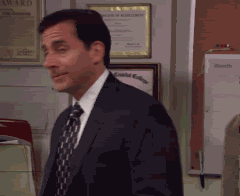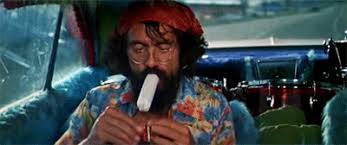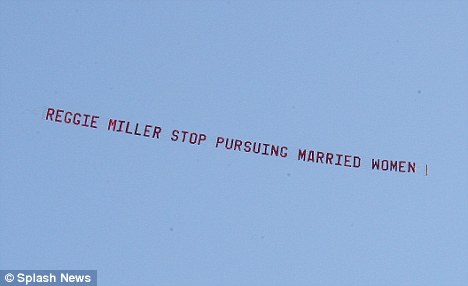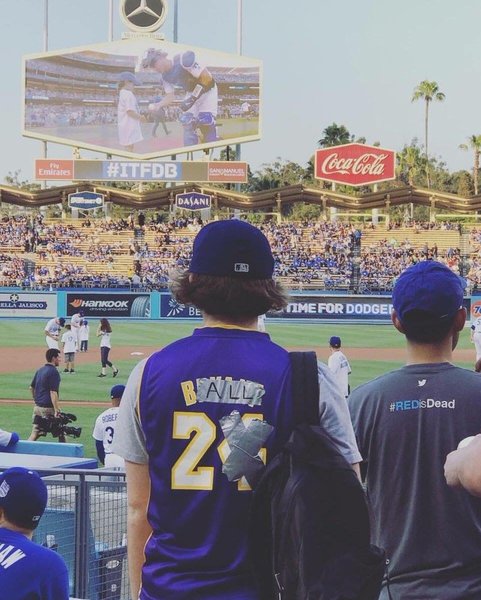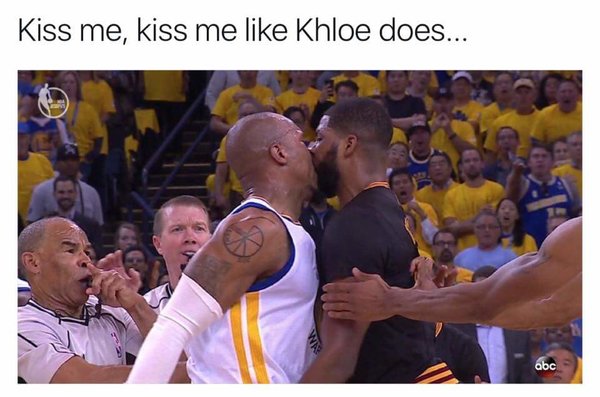Support the forum
Navigation
-
- Men's Style
- Classic Menswear
- Streetwear and Denim
- Preorders, Group Made-to-order, trunk shows, and o
- Menswear Advice
- Former Affiliate Vendor Threads; a Locked Forum.
- Career and job listings in fashion, mens clothing,
-
- American Trench
- AMIDÉ HADELIN
- Archibald London
- The Armoury
- Arterton
- Besnard
- Canoe Club
- Capra Leather
- Carmina
- Cavour
- Crush Store
- De Bonne Facture
- Drinkwater's Cambridge
- Drop93
- eHABERDASHER
- Enzo Custom
- Epaulet
- Exquisite Trimmings
- Fils Unique
- Gentlemen's Footwear
- Giin
- Grant Stone
- House of Huntington
- IsuiT
- John Elliott
- Jonathan Abel
- Kent Wang
- Kirby Allison
- Larimars Clothing
- Lazy Sun
- LuxeSwap
- Luxire Custom Clothing
- Nicks Boots
- No Man Walks Alone
- Once a Day
- Passus shoes
- Proper Cloth
- SARTORIALE
- SEH Kelly
- Self Edge
- Shop the Finest
- Skoaktiebolaget
- Spier and MacKay
- Standard and Strange
- Bespoke Shoemaker Szuba
- Taylor Stitch
- TLB Mallorca
- UNI/FORM LA
- Vanda Fine Clothing
- Von Amper
- Wrong Weather
- Yeossal
- Zam Barrett
Install the app
More options
-
Hi, I am the owner and main administrator of Styleforum. If you find the forum useful and fun, please help support it by buying through the posted links on the forum. Our main, very popular sales thread, where the latest and best sales are listed, are posted HERE
Purchases made through some of our links earns a commission for the forum and allows us to do the work of maintaining and improving it. Finally, thanks for being a part of this community. We realize that there are many choices today on the internet, and we have all of you to thank for making Styleforum the foremost destination for discussions of menswear. -
This site contains affiliate links for which Styleforum may be compensated.
-
STYLE. COMMUNITY. GREAT CLOTHING.
Bored of counting likes on social networks? At Styleforum, you’ll find rousing discussions that go beyond strings of emojis.
Click Here to join Styleforum's thousands of style enthusiasts today!
Styleforum is supported in part by commission earning affiliate links sitewide. Please support us by using them. You may learn more here.
You are using an out of date browser. It may not display this or other websites correctly.
You should upgrade or use an alternative browser.
You should upgrade or use an alternative browser.
NBA 2016-2017 Season Thread
- Joined
- Mar 10, 2006
- Messages
- 25,980
- Reaction score
- 5,170
how many more times
You know damn well he isn't but you know the Basketball Association of America was founded in 1946 by owners of the major ice hockey arenas in the Northeastern and Midwestern United States and Canada. On November 1, 1946, in Toronto, Ontario, Canada, the Toronto Huskies hosted the New York Knickerbockers at Maple Leaf Gardens, in a game the NBA now regards as the first played in its history. The first basket was made by Ossie Schectman of the Knickerbockers. Although there had been earlier attempts at professional basketball leagues, including the American Basketball League and the NBL, the BAA was the first league to attempt to play primarily in large arenas in major cities. During its early years, the quality of play in the BAA was not significantly better than in competing leagues or among leading independent clubs such as the Harlem Globetrotters. For instance, the 1948 ABL finalist Baltimore Bullets moved to the BAA and won that league's 1948 title, and the 1948 NBL champion Minneapolis Lakers won the 1949 BAA title. Prior to the 1948-49 season, however, NBL teams from Fort Wayne, Indianapolis, Minneapolis, and Rochester jumped to the BAA, which established the BAA as the league of choice for collegians looking to turn professional.
Following the 1948-49 season, the BAA took in the remainder of the NBL: Syracuse, Anderson, Tri-Cities, Sheboygan, Denver, and Waterloo. In deference to the merger and to avoid possible legal complications, the league name was changed from the BAA to the National Basketball Association in spite of having the same BAA governing body including Podoloff. The new league had seventeen franchises located in a mix of large and small cities, as well as large arenas and smaller gymnasiums and armories. In 1950, the NBA consolidated to eleven franchises, a process that continued until 1953–54, when the league reached its smallest size of eight franchises, all of which are still in the league (the New York Knicks, Boston Celtics, Golden State Warriors, Los Angeles Lakers, Royals/Kings, Detroit Pistons, Atlanta Hawks, and Nationals/76ers). The process of contraction saw the league's smaller-city franchises move to larger cities. The Hawks shifted from "Tri-Cities" (the area now known as the Quad Cities) to Milwaukee (in 1951) and then to St. Louis, Missouri (in 1955); the Royals from Rochester, New York to Cincinnati (in 1957); and the Pistons from Fort Wayne, Indiana to Detroit (in 1957).
Japanese-American Wataru Misaka broke the NBA color barrier in the 1947–48 season when he played for the New York Knicks. He remained the only non-white player in league history prior to the first African-American, Harold Hunter, signing with the Washington Capitols in 1950. Hunter was cut from the team during training camp,[8][10] but several African-American players did play in the league later that year, including Chuck Cooper with the Celtics, Nathaniel "Sweetwater" Clifton with the Knicks, and Earl Lloyd with the Washington Capitols. During this period, the Minneapolis Lakers, led by center George Mikan, won five NBA Championships and established themselves as the league's first dynasty.[11] To encourage shooting and discourage stalling, the league introduced the 24-second shot clock in 1954. If a team does not attempt to score a field goal (or the ball fails to make contact with the rim) within 24 seconds of obtaining the ball, play is stopped and the ball given to its opponent.
In 1957, rookie center Bill Russell joined the Boston Celtics, who already featured guard Bob Cousy and coach Red Auerbach, and went on to lead the club to eleven NBA titles in thirteen seasons. Center Wilt Chamberlain entered the league with the Warriors in 1959 and became a dominant individual star of the 1960s, setting new single game records in scoring (100) and rebounding (55). Russell's rivalry with Chamberlain became one of the greatest rivalries in the history of American team sports.
The 1960s were dominated by the Celtics. Led by Russell, Bob Cousy and coach Red Auerbach, Boston won eight straight championships in the NBA from the 1959–66. This championship streak is the longest in NBA history. They did not win the title in 1966-67, but regained it in the 1967-68 season and repeated in 1969. The domination totaled nine of the ten championship banners of the 1960s.[13]
Through this period, the NBA continued to strengthen with the shift of the Minneapolis Lakers to Los Angeles, the Philadelphia Warriors to San Francisco, the Syracuse Nationals to Philadelphia to become the Philadelphia 76ers, and the St. Louis Hawks moving to Atlanta, as well as the addition of its first expansion franchises. The Chicago Packers (now Washington Wizards) became the ninth NBA team in 1961. From 1966 to 1968, the league expanded from 9 to 14 teams, introducing the Chicago Bulls, Seattle SuperSonics (now Oklahoma City Thunder), San Diego Rockets (who relocated to Houston four years later), Milwaukee Bucks, and Phoenix Suns.
In 1967, the league faced a new external threat with the formation of the American Basketball Association (ABA). The leagues engaged in a bidding war. The NBA landed the most important college star of the era, Kareem Abdul-Jabbar (then known as Lew Alcindor). However, the NBA's leading scorer, Rick Barry, jumped to the ABA, as did four veteran referees—Norm Drucker, Earl Strom, John Vanak, and Joe Gushue.
In 1969, Alan Siegel, who oversaw the design of Jerry Dior's Major League Baseball logo a year prior, created the modern NBA logo inspired by the MLB's. It incorporates the silhouette of the legendary Jerry West based on a photo by Wen Roberts, although NBA officials denied a particular player as being its influence because, according to Siegel, "They want to institutionalize it rather than individualize it. It's become such a ubiquitous, classic symbol and focal point of their identity and their licensing program that they don't necessarily want to identify it with one player." The iconic logo debuted in 1971 and would remain a fixture of the NBA brand.
The ABA succeeded in signing a number of major stars in the '70s, including Julius Erving of the Virginia Squires, in part because it allowed teams to sign college undergraduates. The NBA expanded rapidly during this period, one purpose being to tie up the most viable cities. From 1966 to 1974, the NBA grew from nine franchises to 18. In 1970, the Portland Trail Blazers, Cleveland Cavaliers, and Buffalo Braves (now the Los Angeles Clippers) all made their debuts expanding the league to 17. The New Orleans Jazz (now in Utah) came aboard in 1974 bringing the total to 18. Following the 1976 season, the leagues reached a settlement that provided for the addition of four ABA franchises to the NBA, raising the number of franchises in the league at that time to 22. The franchises added were the San Antonio Spurs, Denver Nuggets, Indiana Pacers, and New York Nets (now the Brooklyn Nets). Some of the biggest stars of this era were Kareem Abdul-Jabbar, Rick Barry, Dave Cowens, Julius Erving, Elvin Hayes, Walt Frazier, Moses Malone, Artis Gilmore, George Gervin, Dan Issel, and Pete Maravich. The end of the decade, however, saw declining TV ratings, low attendance and drug-related player issues – both perceived and real – that threatened to derail the NBA.
The league added the ABA's innovative three-point field goal beginning in 1979 to open up the game. That same year, rookies Larry Bird and Magic Johnson joined the Boston Celtics and Los Angeles Lakers respectively, initiating a period of significant growth in fan interest in the NBA throughout the country and the world. In 1984 they played against each other for the first time in the NBA Finals. Johnson went on to lead the Lakers to five titles, and Bird went on to lead the Celtics to three. Also in the early '80s, the NBA added one more expansion franchise, the Dallas Mavericks, bringing the total to 23 teams. Later on, Larry Bird won the first three three-point shooting contests. Former league commissioner David Stern who took office on February 1, 1984 before retiring February 1, 2014, oversaw the expansion and growth of the NBA to a global commodity.
Michael Jordan entered the league in 1984 with the Chicago Bulls, providing an even more popular star to support growing interest in the league. This resulted in more cities demanding teams of their own. In 1988 and 1989, four cities got their wishes as the Charlotte Hornets, Miami Heat, Orlando Magic, and Minnesota Timberwolves made their NBA debuts, bringing the total to 27 teams. In the first year of the 1990s, the Detroit Pistons would win the second of their back-to-back titles, led by coach Chuck Daly and guard Isiah Thomas. Jordan and Scottie Pippen would lead the Bulls to two three-peats in eight years during the 1991–98 seasons. Hakeem Olajuwon won back-to-back titles with the Houston Rockets in '94 and '95.
The 1992 Olympic basketball Dream Team, the first to use current NBA stars, featured Michael Jordan as the anchor, along with Bird, Johnson, David Robinson, Patrick Ewing, Scottie Pippen, Clyde Drexler, Karl Malone, John Stockton, Chris Mullin, Charles Barkley, and Christian Laettner. Eleven players on the Dream Team have been inducted individually into the Basketball Hall of Fame.
In 1995, the NBA expanded to Canada with the addition of the Vancouver Grizzlies and the Toronto Raptors. In 2001, the Vancouver Grizzlies relocated to Memphis, which left the Raptors as the only Canadian team in the NBA.
In 1996, the NBA created a women's league, the Women's National Basketball Association (WNBA).
In 1998, the NBA owners began a lockout which lasted 191 days and was settled on January 18, 1999. As a result of this lockout the 1998–99 NBA season was reduced from 82 to 50 games (61% of a normal season), and the All-Star Game was cancelled. The San Antonio Spurs won their first championship, and first by a former ABA team, by beating the New York Knicks, who were the first, and to this date, the only, eighth seed to ever make it to the NBA Finals.
Since the breakup of the Chicago Bulls championship roster in the summer of 1998, the Western Conference has dominated, with the Los Angeles Lakers and San Antonio Spurs combining to win the title in nine of fourteen years. Tim Duncan and David Robinson won the 1999 championship with the Spurs, and Shaquille O'Neal and Kobe Bryant started the 2000s with three consecutive championships for the Lakers. The Spurs reclaimed the title in 2003 against the Nets. In 2004, the Lakers returned to the Finals, only to fall in five games to the Detroit Pistons.
After the Spurs took home the Larry O'Brien Championship Trophy in 2005, the 2006 Finals featured two franchises making their inaugural Finals appearances. The Miami Heat, led by their star shooting guard, Dwyane Wade, and Shaquille O'Neal, who had been traded from the Lakers during the 2004 summer, won the series over the Dallas Mavericks in six after losing the first two games. The Lakers/Spurs dominance continued in 2007 with a four-game sweep by the Spurs over the Cleveland Cavaliers, who were led by LeBron James. The 2008 Finals saw a rematch of the league's highest profile rivalry, the Boston Celtics and Los Angeles Lakers, with the Celtics prevailing, for their league leading 17th championship, thanks to their new big three of Paul Pierce, Ray Allen, and Kevin Garnett.
In 2009, the Lakers with Kobe Bryant returned to the Finals, this time defeating the Dwight Howard-led Orlando Magic.[18] Kobe Bryant won his first Bill Russell NBA Finals Most Valuable Player Award award in his 13th season after leading the Lakers to their first NBA championship since the departure of Shaquille O'Neal.
The 2010 NBA All-Star Game was held at Cowboys Stadium in front of the largest crowd ever, 108,713.[20] At the end of that season, the Celtics and the Lakers renewed their rivalry from 2008 when they met again in the NBA Finals for a record 12th time. The Lakers won the title in Game 7, 83–79. Before the start of the 2010–11 season the NBA had an exciting summer with one of the most anticipated free agent classes of all time. Two of which signed, and one resigned, with the Miami Heat, leading to a season that was heavily centered on their eventual success or failure at taking home the championship. The Heat, led by LeBron James, Dwyane Wade, and Chris Bosh, did in fact make the Finals against the Dallas Mavericks, in a rematch for the franchises of the 2006 Finals. The Mavericks, led by Dirk Nowitzki (the eventual NBA Finals MVP), took the series in six games. This was the Mavericks' first title. Other veterans like Shawn Marion, Jason Kidd, and Jason Terry also won their first titles with Nowitzki.
On July 1, 2011, at 12:01 am, the NBA announced another lockout. After the first few weeks of the season were canceled, the players and owners ratified a new collective bargaining agreement on December 8, 2011, setting up a shortened 66-game season.[23] Following the shortened season, the Miami Heat made a return to the Finals with the trio of Dwyane Wade, Lebron James and Chris Bosh against Oklahoma City's Kevin Durant, Russell Westbrook and James Harden. The Heat went on to defeat the Thunder in five games, capturing their second NBA title in six years.
But wait I hear they're prissy, bourgeois, all that. Is this the type of place that they just send this cool cat? I don't think so, I'll see when I get there. I hope they're prepared for the prince of Bel-Air. Well, the plane landed and when I came out. There was a dude who looked like a cop standing there with my name out. I ain't trying to get arrested yet. I just got here I sprang with the quickness like lightning, disappeared. I whistled for a cab and when it came near the license plate said fresh and it had dice in the mirror. If anything I could say that this cab was rare but I thought 'Nah, forget it' - 'Yo, homes to Bel Air'.
I pulled up to the house about 7 or 8, and I yelled to the cabbie 'Yo homes smell ya later'/ I looked at my kingdom, I was finally there, to sit on my throne as the Prince of Bel Air.
Hey can you guys quote that whole thing in its entirety a couple more times?
how many more times
diadem
Distinguished Member
- Joined
- Sep 29, 2012
- Messages
- 1,103
- Reaction score
- 305
I know you didn't, but you might as well have typed all that up. That's kind of what we expect of you now.
Brothersport
Distinguished Member
- Joined
- Apr 10, 2009
- Messages
- 2,309
- Reaction score
- 1,052
more potential trouble in okc:
Looks clear that there is some frustration and friction between Jackson and his teammates right now. They're almost freezing him out.
— Darnell Mayberry (@DarnellMayberry) November 4, 2014
— Darnell Mayberry (@DarnellMayberry) November 4, 2014
Steve B.
Go Spurs Go
- Joined
- Mar 2, 2002
- Messages
- 10,286
- Reaction score
- 134
I think the Spurs were smart to wait him out. If he plays well, give him the $. If not...
I think the Spurs should keep him. He's going to keep the Spurs as championship contenders as long as Duncan, Parker, and Ginobili play similarly to the way they played last year. And I don't see the Spurs winning a championship if one of Duncan, Parker, or Ginobili retire, so what's the point of not trying to be contenders when the Big 3 are still playing?
And after the Big 3, he'll only be paid around $14 million (correct me if I'm wrong) a year, which is not a terrible price for a player that can play well in Pop's system in a small NBA market.
So if the only way he stays a Spur is if he gets the max, I think he should get it. Obviously if they can keep him by paying less, they should try to do that as well.
they made a wise move not to extend him now, they can still do it at the end of the season, if he doesn't improve or has a bad year they can pay him less and keep him if not he will earn his max
I think the Spurs were smart to wait him out. If he plays well, give him the $. If not...
indesertum
Stylish Dinosaur
- Joined
- Jun 7, 2007
- Messages
- 17,396
- Reaction score
- 3,888
utah jazz super underrated. their defense is pretty awesome. supposedly shortest distance between defender and shooters out of all teams. quin snyder holy ****. this years phoenix suns of last year
also kings going head to head with all the big boys. rudy gay and boogie stepping their game up
also kings going head to head with all the big boys. rudy gay and boogie stepping their game up
Last edited:
Neo_Version 7
Stylish Dinosaur
- Joined
- Nov 26, 2007
- Messages
- 17,292
- Reaction score
- 4,323
HRoi would know. Being a Miami fan and all 

lawyerdad
Lying Dog-faced Pony Soldier
- Joined
- Mar 10, 2006
- Messages
- 27,006
- Reaction score
- 17,142
You mean like, "give the ball to Kendrick Perkins"?
Imagine what OKC would be now (2-3 years removed from the Finals) if they had a better coach and implemented some type of system other than "give the ball to KD and Westbrook". Obviously, the injuries derailed things but a bench could have been developed. Something. Anything. And obligatory James Harden trade point.
You mean like, "give the ball to Kendrick Perkins"?
HRoi
Stylish Dinosaur
- Joined
- Dec 28, 2008
- Messages
- 25,295
- Reaction score
- 16,216
It's an art form, flopping to both gain a game advantage and troll your enraged detractor base at the same time
HRoi would know. Being a Miami fan and all
It's an art form, flopping to both gain a game advantage and troll your enraged detractor base at the same time

wojt
Distinguished Member
- Joined
- May 16, 2013
- Messages
- 9,525
- Reaction score
- 4,032
Sort of agree... OKC doesn't have the personel to play like Heat or Spurs for example. It's sort of 2001 76ers scenario but with 2Iversons and crappier role players. They obviously failed Harden trade though. They are still pretty good and made it to the finals so it's not like they aren't successful.
You mean like, "give the ball to Kendrick Perkins"?
Sort of agree... OKC doesn't have the personel to play like Heat or Spurs for example. It's sort of 2001 76ers scenario but with 2Iversons and crappier role players. They obviously failed Harden trade though. They are still pretty good and made it to the finals so it's not like they aren't successful.
Last edited:
idfnl
Stylish Dinosaur
- Joined
- Dec 6, 2008
- Messages
- 17,305
- Reaction score
- 1,260
Don't say that. I have him in fantasy.
Honestly, if I had to bet right now, I'd take the 55 as long as they were fantasy playoff weeks.
I'm setting the over/under on the number of games played by Brook Lopez this season at 55. Optimistic, I know.
Don't say that. I have him in fantasy.
Honestly, if I had to bet right now, I'd take the 55 as long as they were fantasy playoff weeks.
FEATURED PRODUCTS
-
LuxeSwap Auction - De Bonne Facture Made France Plaid Boiled Robe Coat One of several De Bonne Facture robe coats featured this week, these pieces are being sold for our consignor in conjunction with our NMWA tradeup program - a forum first program that gets you several add ons for consigning and credits to shop at NMWA.
-
 Nicks Boots - Wickett & Craig English Bridle Veg Tan Leather - $759
These boots are made from 6.5 oz Wickett & Craig English Bridle Leather. This tannery has been making leather the old fashioned way since 1867. Each side can take about six weeks to produce, making it a significantly longer production time than most leather on the market.
Nicks Boots - Wickett & Craig English Bridle Veg Tan Leather - $759
These boots are made from 6.5 oz Wickett & Craig English Bridle Leather. This tannery has been making leather the old fashioned way since 1867. Each side can take about six weeks to produce, making it a significantly longer production time than most leather on the market.
-
UNIFORM/LA - Relaxed Type III Trucker Jacket - $348 A versatile desert-kissed vintage indigo – the Relaxed Type III Trucker Jacket in Dune is made of premium 14-ounce Japanese 3x1 denim and features a beautiful vintage wash. Outfitted with a perfect relaxed fit and slightly cropped length, it's designed to replicate denim jackets that have been worn for years – fading with hard wear under the intense sun.
Latest posts
- Replies
- 39,792
- Views
- 5,855,246
- Replies
- 934
- Views
- 93,362
- Replies
- 919
- Views
- 322,151
- Replies
- 18,429
- Views
- 3,661,112
Similar threads
- Replies
- 127
- Views
- 59,314
- Replies
- 4
- Views
- 2,384
- Replies
- 27
- Views
- 8,910
- Replies
- 77
- Views
- 131,146
Featured Sponsor
Forum Sponsors
- American Trench
- AMIDÉ HADELIN
- Archibald London
- The Armoury
- Arterton
- Besnard
- Canoe Club
- Capra Leather
- Carmina
- Cavour
- Crush Store
- De Bonne Facture
- Drinkwater's Cambridge
- Drop93
- eHABERDASHER
- Enzo Custom
- Epaulet
- Exquisite Trimmings
- Fils Unique
- Gentlemen's Footwear
- Giin
- Grant Stone
- House of Huntington
- IsuiT
- John Elliott
- Jonathan Abel
- Kent Wang
- Kirby Allison
- Larimars Clothing
- Lazy Sun
- LuxeSwap
- Luxire Custom Clothing
- Nicks Boots
- No Man Walks Alone
- Once a Day
- Passus shoes
- Proper Cloth
- SARTORIALE
- SEH Kelly
- Self Edge
- Shop the Finest
- Skoaktiebolaget
- Spier and MacKay
- Standard and Strange
- Bespoke Shoemaker Szuba
- Taylor Stitch
- TLB Mallorca
- UNI/FORM LA
- Vanda Fine Clothing
- Von Amper
- Wrong Weather
- Yeossal
- Zam Barrett
Members online
- sterlingindigo
- zippyh
- mrcmcklwht
- Artserg
- greekgeek
- CLH03
- Numbernine
- Chaconne
- sewer election
- Shoenut
- smfdoc
- WBaker
- King-Panther
- matty long legs
- uganda
- The_J_Hat
- rose04
- otc
- nachobarro
- AriGold
- ICT316
- The_International
- Jerkstore
- flipperdom
- Henry S
- SneakyTurtle
- htinlinn
- ckmpatcl
- Newcomer
- YseanY
- JessBob
- ForwardPleats
- stevenshwlo
- c689
- Thin White Duke
- Hisheirness23
- chrispy650
- Bamaboots
- Jr Mouse
- Ratty
- Wally_SF
- Big Bird
- Relovar
- Chegueverawang
- sartorialnapoli
- aadamx86
- VegasGreek
- kindofyoung
- brokencycle
- Peak and Pine
Total: 1,512 (members: 97, guests: 1,415)

